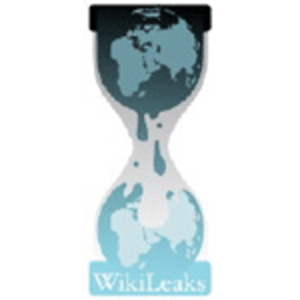Julian Assange, leader of the whistle blower website Wikileaks, has won the reader’s poll at TIME Magazine for Person of the Year in 2010, the magazine announced today. Assange won with more than three hundred and eighty two thousand votes, more than double the second place finisher, Turkish Prime Minister Recep Tayyip Ergodan.

TIME Editors will ultimately make the Person of the Year selection and it’s sure to be controversial whether they choose Assange or not. The winner will be announced on the TV show Good Morning America this Wednesday.
WikiLeaks Coverage From ReadWriteWeb:
- Wikileaks Lets Loose “Global Intelligence Files” from Stratfor Emails
- WikiLeaks May Move Servers to International Waters to Avoid Shutdown
- One Year After Cablegate Began, WikiLeaks’ Operations Still Handicapped
- Twitter, WikiLeaks and the Troubling New Implications For Online Privacy
- Having Ended the Iraq War, Wikileaks Runs Out of Money
- Did Google Hand a Wikileaks Volunteer’s Gmail Data to the U.S. Government? [Updated]
- Weekly Wrap-up: Wikileaks, Google Plus, Facebook and More…
- Wikileaks Takes Down the Head of Al Jazeera
Assange’s critics have called him a terrorist and a danger to the United States, if not to global stability in general. His supporters generally consider him a brave journalist dedicated to exposing wrong-doings and advancing the cause of political transparency and responsibility. Naming him the Person of the Year would not be a signal of support by TIME’s editors for Assange’s actions, Stalin was once named person of the year simply because of his (negative) global impact, but it would confer a degree of legitimacy.
Assange is currently being held in a UK jail, denied bail and facing possible extradition to Sweden, where it’s believed he might be handed over the US authorities. He’s being held not for his dealings in stolen documents, but for violating Sweden’s politically progressive laws against sexual assault.
TIME’s Managing Editor, Richard Stengel, has paid close attention to the case of Wikileaks and has personally interviewed Assange in recent months. Editor at Large Fareed Zakaria, on the other hand, seems utterly indifferent. The former editor of Newsweek International, if Zakaria’s perspective isn’t influential on the decision it is at least typical of the thinking of the members of the political establishment not bent on Assange’s destruction.
On Zakaria’s most recent CNN podcast, his panel of international analysts chuckled for just a few minutes about the impact Wikileaks is likely to have on diplomatic record keeping, history and accountability. (Specifically, people would simply stop writing things down.) Zakaria said that the leaked documents hadn’t disclosed duplicity or immoral behavior on the part of US officials and then the group moved on to talking about international currencies and debt.
Explicit evidence of clear lies covering up US military action in Yemen, the coverup of human trafficking by US military contractors, the revelations that US officials had sought information to blackmail climate change negotiation participants more enthusiastic about regulations than the US and other high-profile contents of the small portion of leaked documents that have been published were apparently considered trivial.
Given what columnist Glenn Greenwald has called the authoritarianism of the American media when it comes to Wikileaks (and other matters) nothing can be taken for granted, no matter how polls turn out. Both supporters and critics of Wikileaks will no doubt have fingers crossed and one eye shielded from the TV when this venerable award is issued to someone Wednesday morning.

















